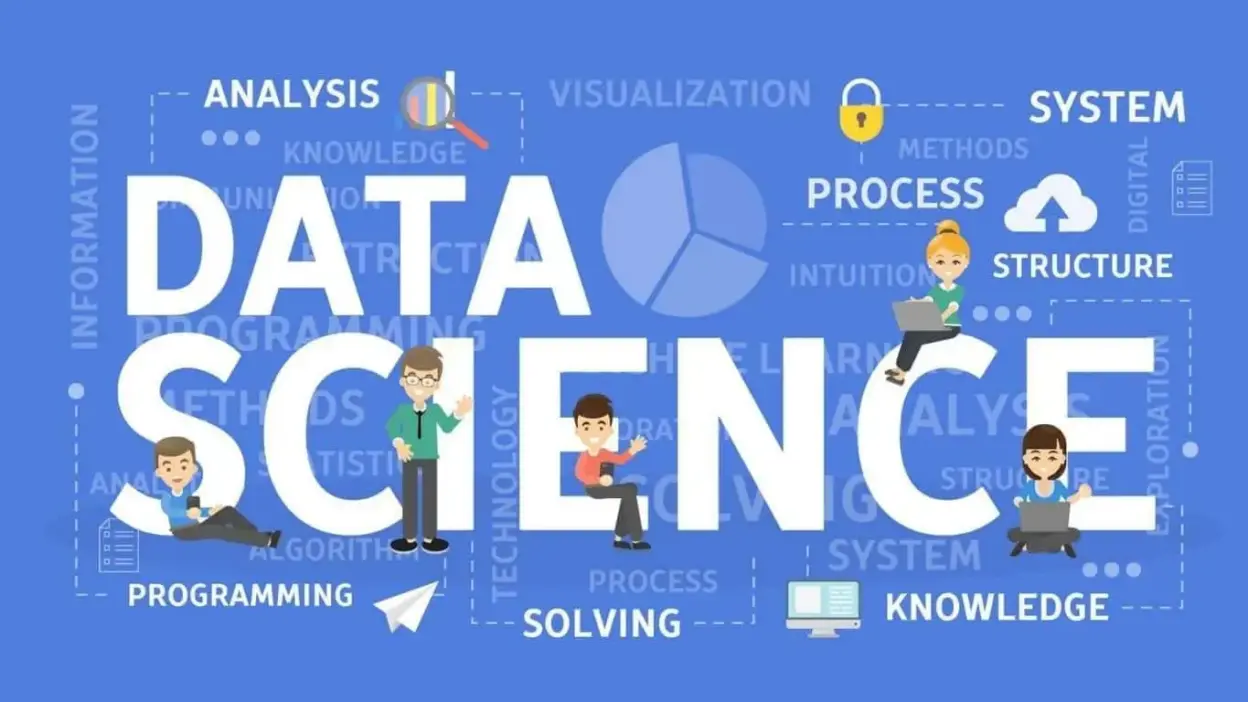In today’s digital era, the mastery of data science has become a sought-after skill, pivotal in shaping industries and decision-making processes. As vast amounts of data continue to burgeon, the need for adept professionals to decipher, analyze, and transform this data into actionable insights is more crucial than ever. Whether you’re a budding enthusiast or a seasoned professional, delving deep into the realm of data requires the right resources. Amidst a plethora of available literature, pinpointing the most insightful books can be challenging. To aid in this journey, we’ve curated a list of “7 Best Books To Master Data Science”. These tomes, written by esteemed experts, provide comprehensive knowledge, from foundational concepts to advanced methodologies.
7 Best Books To Master Data Science
Weapons of Math Destruction by Cathy O’Neil
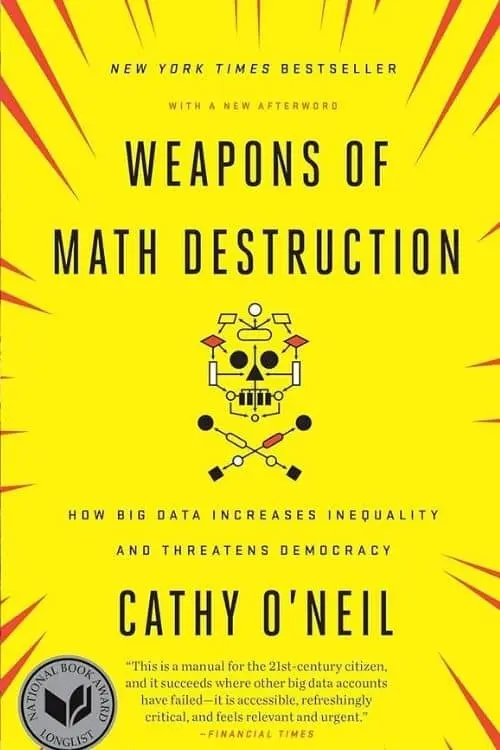
Diving into the intricate relationship between algorithms and society, Cathy O’Neil’s 2016 masterpiece delves deep into the repercussions of big data on societal structures. “Weapons of Math Destruction” sheds light on how algorithms, often perceived as neutral, can inadvertently perpetuate and even amplify systemic inequalities.
O’Neil meticulously uncovers the often-veiled mechanisms by which data-driven decisions can introduce or entrench bias. Through compelling narratives, she illustrates real-world scenarios where these algorithms exert undue influence, often at the expense of the marginalized.
Furthermore, O’Neil challenges the uncritical acceptance of mathematical models as inherently objective. With a discerning lens, this seminal work prompts readers to critically assess the role of data in shaping our world, urging for transparency and ethical considerations in algorithmic applications.
Storytelling with Data by Cole Nussbaumer Knaflic
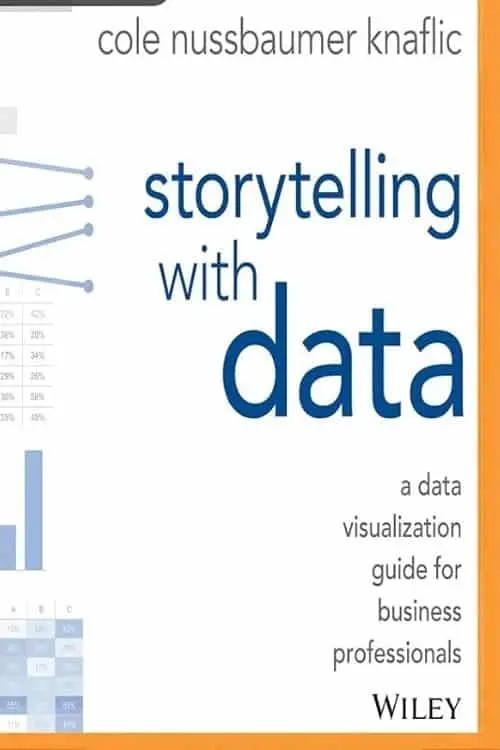
Cole Nussbaumer Knaflic’s “Storytelling with Data” transcends traditional data visualization approaches, advocating for a more narrative-driven methodology. Knaflic impresses upon readers the notion that data, when presented correctly, can be more than just numbers on a page—it can narrate powerful Stories that captivate and inform.
Delving into the core principles of data visualization, the book offers a roadmap on how to communicate persuasively with data. Rather than merely displaying figures, readers are encouraged to harness the innate power of storytelling, placing data at the heart of their narrative. Through her expert guidance, Knaflic transforms data presentation from a mundane task into an art form, ensuring that your data doesn’t just inform but also resonates and leaves a lasting impact.
Algorithms to Live By: The Computer Science of Human Decisions by Brian Christian, Tom Griffiths
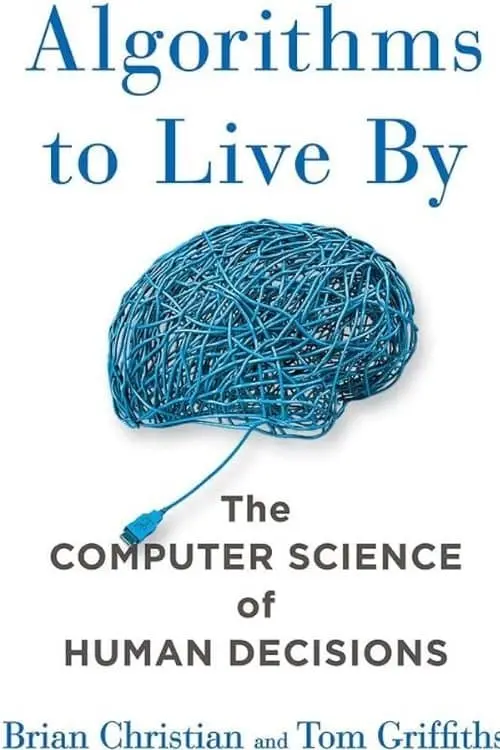
In “Algorithms to Live By: The Computer Science of Human Decisions,” Brian Christian and Tom Griffiths embark on an intriguing journey, bridging the gap between the binary world of computers and the complex realm of human decision-making. Drawing from an interdisciplinary blend of computer science and cognitive psychology, the duo presents a captivating narrative, suggesting that the precision and logic of algorithms can be harnessed to navigate our daily dilemmas.
Christian, an acclaimed author, and Griffiths, a seasoned cognitive scientist, dive deep into the mechanics of computer algorithms, demonstrating their potential to unravel some of life’s most perplexing questions. Their approach encourages readers to view everyday challenges through a computational lens, offering fresh perspectives and novel solutions. The underlying message? Beneath the layers of human complexity, there might just be an algorithm waiting to guide us.
Practical Statistics for Data Scientists: 50+ Essential Concepts Using R and Python by Peter Bruce, Andrew Bruce
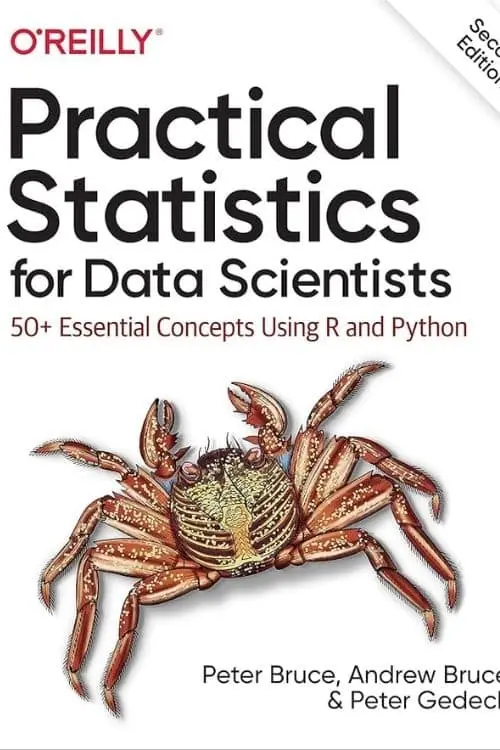
“Practical Statistics for Data Scientists: 50+ Essential Concepts Using R and Python” by Peter Bruce and Andrew Bruce addresses a critical gap in the evolving world of data science: the application of core statistical methods. Recognizing that many data scientists venture into the field with backgrounds devoid of formal statistical education, the authors provide a tailored resource that speaks directly to their unique challenges and needs.
While traditional courses and literature might touch upon basic statistical principles, they often fall short in contextualizing them within the data science landscape. Bruce and Bruce’s book, however, rises to the occasion by offering a blend of fundamental statistics and their application using popular programming languages R and Python.
By connecting theoretical statistical concepts with hands-on coding practices, this guide ensures that data scientists not only understand the ‘why’ but also the ‘how’ of using statistics in their work, optimizing data interpretation and decision-making processes.
Ace the Data Science Interview: 201 Real Interview Questions Asked By FAANG, Tech Startups, & Wall Street
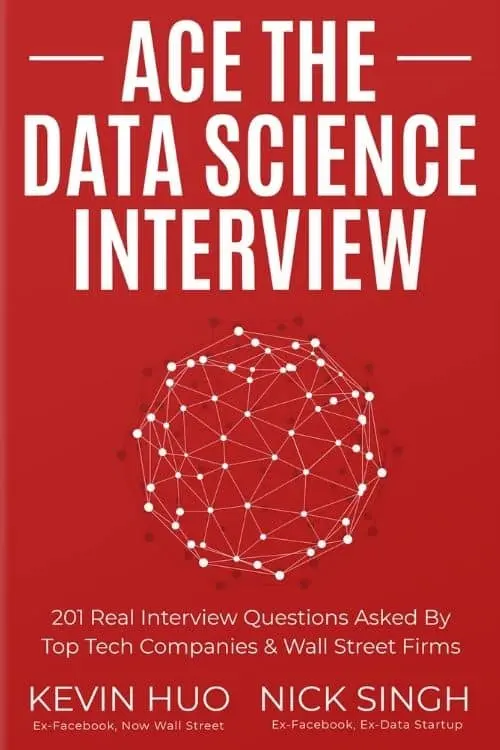
Navigating the daunting world of data science interviews can be overwhelming, but “Ace the Data Science Interview” serves as an invaluable compass. This comprehensive guide is meticulously curated, featuring 201 authentic interview questions posed by leading giants such as Facebook, Google, Airbnb, Square, Two Sigma, and many other tech startups and Wall Street firms. But what sets this book apart is not just the sheer breadth of its content—it’s the depth.
Each question is not only presented but also paired with an exhaustive walk-through, dissecting the solution in detail. This approach demystifies complex data science concepts, ensuring that aspiring candidates are well-prepared, not just in answering questions but in understanding the core principles underpinning them. For anyone eager to make their mark in the competitive landscape of data science, this resource is nothing short of essential, providing insights and strategies to not only tackle but ace those high-stakes interviews.
Data Science (The MIT Press Essential Knowledge series) by John D. Kelleher and Brendan Tierney
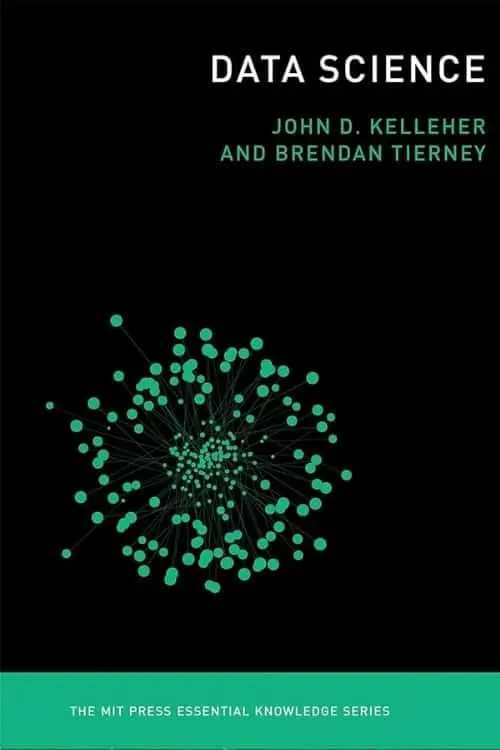
In “Data Science (The MIT Press Essential Knowledge series)”, authors John D. Kelleher and Brendan Tierney demystify the intricate tapestry of data science, offering readers a succinct yet comprehensive overview. Seamlessly weaving together historical context with contemporary applications, this book elucidates the multifaceted evolution of data science as both a discipline and a driving force in modern technological advancements.
One of the standout features of this tome is its exploration of the symbiotic relationship between data science and machine learning, delving into how they complement and enhance each other. Moreover, Kelleher and Tierney shine a light on real-world applications, showcasing the transformative power of data science across various industries.
They also provide insights into the backbone of the field, the data infrastructure, laying down the foundational understanding required for anyone keen to dive deeper. Part of the renowned MIT Press Essential Knowledge series, this book is a beacon for anyone navigating the vast seas of data science, offering clarity amidst its complex depths.
Building Machine Learning Powered Applications by Emmanuel Ameisen
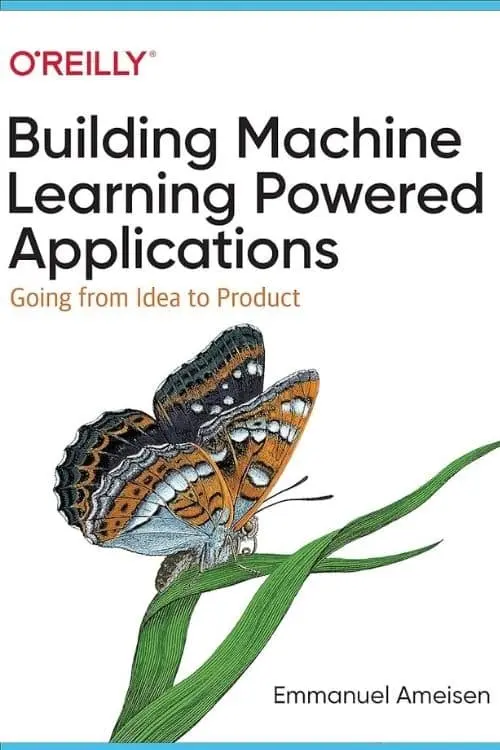
In “Building Machine Learning Powered Applications,” Emmanuel Ameisen provides a hands-on guide for readers aiming to transform a machine learning idea into a fully-fledged application. Recognizing the chasm that often exists between theoretical machine learning concepts and their practical implementation, Ameisen crafts a resource that bridges this gap, ensuring that aspirants don’t merely understand ML but can effectively deploy it.
The book walks readers through the end-to-end process of building machine learning applications. From problem definition, data collection, and model training to evaluation, optimization, and deployment, every stage is meticulously detailed. Ameisen emphasizes the iterative nature of building ML-powered solutions, addressing common pitfalls and challenges encountered along the way.
For developers and data scientists eager to make the leap from theory to real-world application, Ameisen’s work serves as both a roadmap and a mentor. It’s a testament to the belief that machine learning, when harnessed correctly, can be a game-changer, transforming industries and catalyzing innovation.
Also Read: 10 Spiritual Books To Uplift You

